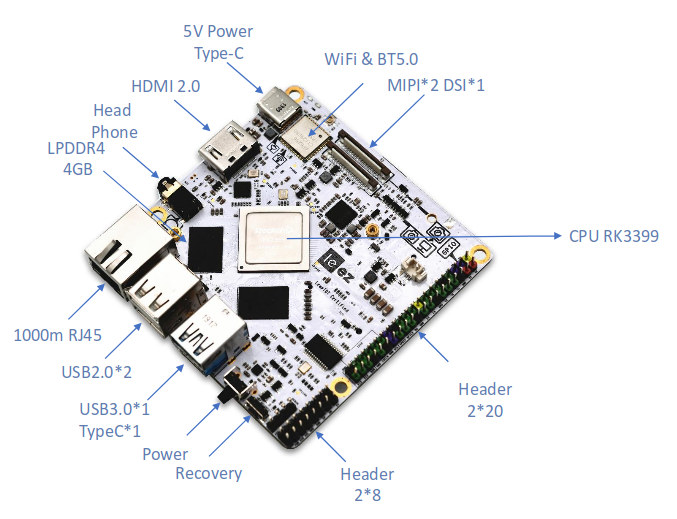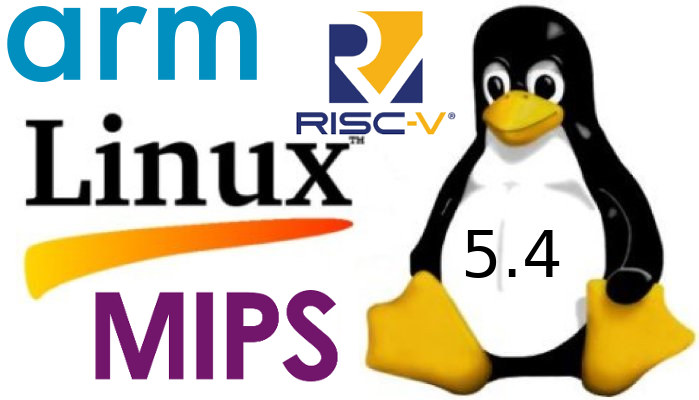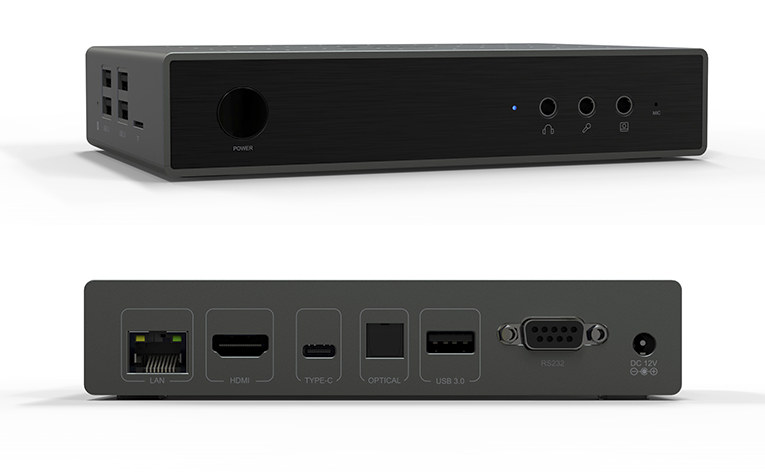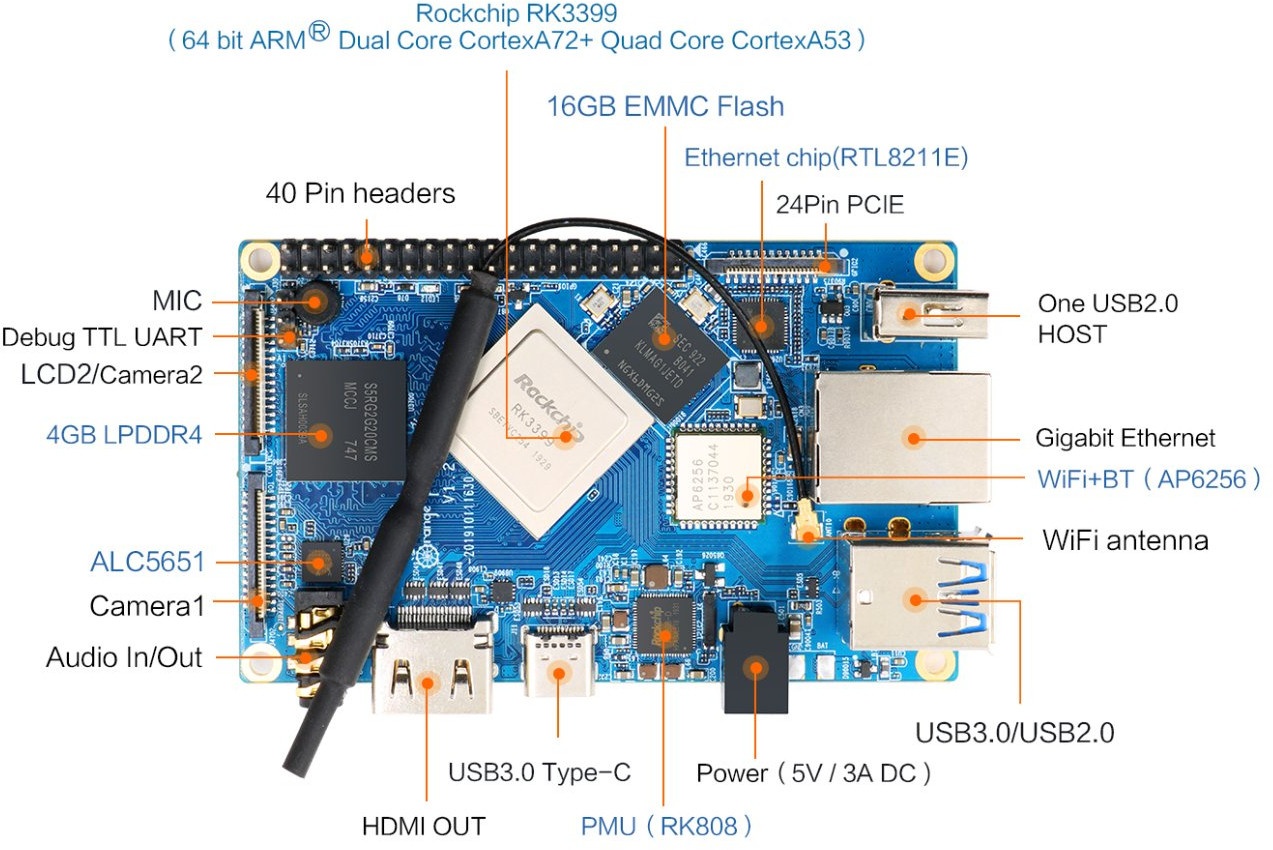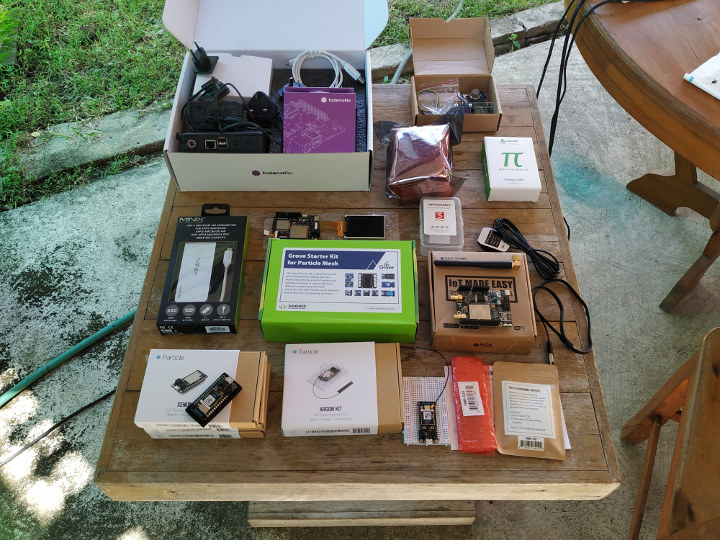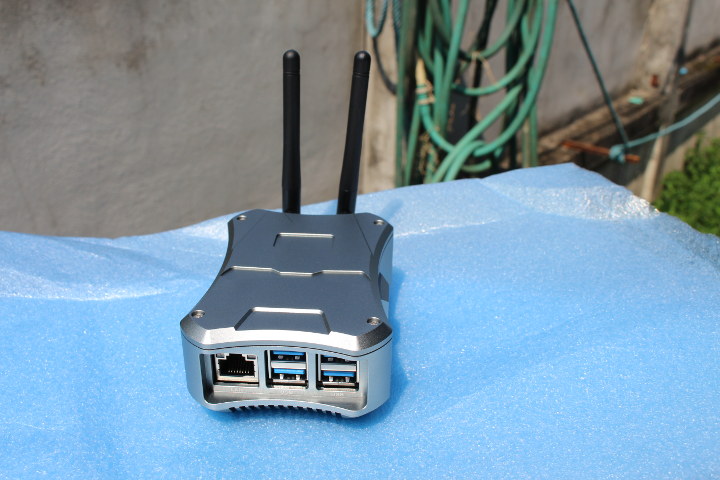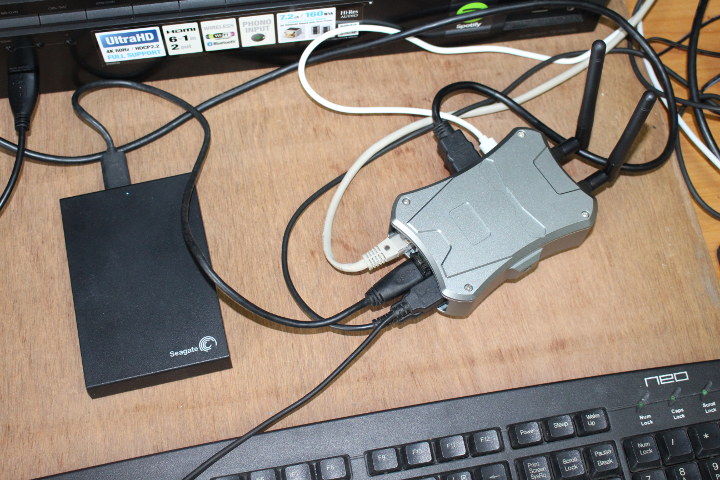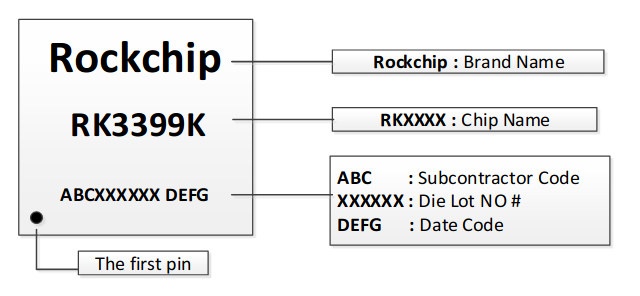It’s always interesting to look into mainline Linux changelog either to find out about new software features, but also new hardware platform. And earlier today, I wrote about Linux 5.4 release, I noticed comments about “Leez RK3399 P710 SBC“. After searching a bit, it turns out it’s a single board computer by Lenovo, which the company apparently showcased at World Mobile Congress in Spain last February. Leez is apparently a team part of Lenovo. Lenovo Leez P710 board specifications: SoC – Rockchip RK3399 hexa-core processor with 2x Cortex-A72 cores @ up to 2.0 GHz, 4x Cortex-A53 cores, and an Arm Mali-T860MP4 GPU System Memory – 2 or 4GB LPDDR4 Storage – 16GB eMMC flash, MicroSD card slot Video Output – HDMI 2.0a up to 4K @ 60 Hz, 4-lane MIPI DSI, DisplayPort via USB-C port Audio – Audio jack + digital audio output via HDMI Camera I/F -2x 4-Lane MIPI-CSI […]
Linux 5.4 Release – Main Changes, Arm, MIPS & RISC-V Architectures
Linus Torvalds has just announced the release of Linux 5.4: Not a lot happened this last week, which is just how I like it. And as expected, most of the pull requests I got were for the 5.5 merge window, which I’ll obviously start working through tomorrow. What little there is here is mostly some networking updates (mix of network drivers and core networking), and some minor GPU driver updates. Other than that it’s a small collection of random other things all over. The appended shortlog is small enough that you might as well just scroll through it. Anyway, this obviously opens the merge window for 5.5. It’s not ideal timing with Thanksgiving week coming up, but it hopefully shouldn’t be too much of an issue. If I fall behind (not because I’m all that big of a fan of the indiscriminate and relentless turkey-killing holiday) it’s because we’ve got […]
Zidoo M9 is a Rockchip RK3399 TV Box/Mini PC/SBC with Android 7.1 + SDK
Zidoo has launched several TV boxes running Android over the years, some of which we reviewed such as Zidoo X9 (2015), or Zidoo H6 Pro. They also have experience launched dual-OS systems with Android and OpenWrt running simultaneously for multimedia and router functions respectively through their Zidoo X9S media center. The company has now contacted CNX Software to review their latest model. Zidoo M9 is a higher-end Rockchip RK3399 powered Android 7.1 TV box or mini PC, and Zidoo will also sell it as a single board computer for custom projects in the field of robotics, automotive control, artificial intelligence and more. Zidoo M9 specifications: SoC – Rockchip RK3399 hexa-core processor with 2x Cortex-A72 cores @ 2.0GHz, 4x Cortex-A53 cores. and a Mali-T860MP4 GPU with support for OpenGL ES 1.1/2.0 /3.0, OpenVG1.1, OpenCL, and Directx11 System Memory – Dual-channel 4GB DDR (2GB is optional) Storage – 32GB eMMC5.1 flash (8GB/16GB/64G/128G […]
Orange Pi 4/4B SBC Comes with Rockchip RK3399 SoC, Gyrfalcon 2801S NPU
Shenzhen Xunlong Software’s Orange Pi RK3399 single board computer launched in early 2018 with 2GB RAM for $109, and earlier this year, the company launched an updated version with 4GB RAM and a lower $99.96 price tag. But there are plenty Rockchip RK3399 SBC’s on the market, including FrienglyELEC NanoPi M4 going for $50 and up ($75 with 4GB RAM), and Pine64 RockPro64 board starting at $59.99 with 2GB RAM, and $79.99 with 4GB. So unless you need the extra features (HDMI Input, SATA port, mPCIe socket…) offered by Orange Pi RK3399, other boards may be more competitive. So the company has been working on lowering the cost with a smaller board. Meet Orange Pi 4. They’ve also provided some extra features with a variant of the board called Orange Pi 4B that adds a Gyrfalcon Lightspeeur 2801S AI accelerator chip/NPU. That says a lot that neither Rockchip RK3399Pro SoC […]
Giveaway Week Winners – November 2019
We just had another of our yearly “Giveaway week” on CNX Software with 7 prizes including Arm and RISC-V development boards, NB-IoT tracker, USB-C hub, as well as development kits based on ESP32 or ESP8266 WiSoCs. People just had to comment within a 48 hours period, and we would randomly select a winner each day. We now have all confirmed winners with a strong start from Europe, Asia catching up mid-week, before with Poland and Brazil taking the week-end prizes: Balena Fin Developer Kit – Laurent H, FRANCE WisCellular NB-IoT & eMTC GPS Tracker – Jimmy, SWEDEN MINIX NEO S1 USB-C Hub with 120GB built-in SSD – Jeroen, BELGIUM Maixduino Sipeed M1 RISC-V AI Kit – Nguyen Tung, VIETNAM ANAVI Gas Detector Starter Kit – Bumsik Kim, SOUTH KOREA Particle Mesh IoT Development Kit – Wojciech Lubicz-Lapinski, POLAND NanoPi M4V2 SBC & Metal Case Kit – Thiago Tavares, BRAZIL I […]
Giveaway Week – NanoPi M4V2 SBC & Metal Case Kit
Let’s finish giveaway week 2019 on a high with FriendlyELEC NanoPi M4V2 single board computer, and its metal case kit. The board features a Rockchip RK3399 processor with 4GB LPDDR4 RAM, and the metal case kit allows the addition of an NVMe M.2 SSD as well. I tested the mini PC with FriendlyCore Desktop based on Ubuntu 18.04, since at the time, Armbian was still not working with the updated board equipped with LPDDR4 memory, and Android requires an eMMC flash module which was not part of the kits I received. NanoPi M4V2 performed fairly well in the case, but the fan is quite noisy, and somehow the RAM bandwidth was almost half of the one in the earlier NanoPi M4 board with DDR3 memory, which is the opposite one would expect. Probably related to some software tweaks as explained in the comments section of the review. I received two […]
NanoPi M4V2 Kit Review – Part 2: FriendlyCore Desktop
We’ve already seen how to assemble NanoPi M4V2 metal case kit which offers an Arm mini PC solution with support for NVMe SSD. The new NanoPi M4V2 Rockchip RK3399 SBC is an evolution of the M4 board that brings faster LPDDR4 memory and adds power & recovery buttons. Since we’ve already tested several RK3399 SBC‘s and TV boxes, I planned to focus the review on thermal design evaluation (i.e. see how well the board cools), and see how memory bandwidth evolved from LPDDR3 to LPDDR4. I wanted to do so both with Linux and Android, since I could compare NanoPC-T4 (LPDDR3) benchmarks in Android. But this requires an eMMC flash module, and I don’t own any. So instead I planned to run Armbian because of support for armbian-monitor for nice temperature chart but it’s not working just yet, so instead I’ve done all tests with FriendlyCore Desktop (rk3399-sd-friendlydesktop-bionic-4.4-arm64-20190926.img) based on […]
Rockchip RK3399K Processor Clocks Up to 2.0 GHz, Supports Wider Temperature Range
First unveiled in 2016, Rockchip RK3399 hexa-core processor is still widely used in development boards, Android mini PCs and Chromebooks. But today, I’ve come across another variant. Rockchip RK3399K has exactly the same features but either supports higher clock CPU clocks (Cortex-A72 @ 2.0 GHz, Cortex-A53 @ 1.6 GHz), or wider temperature range between -20°C and 85°C with lower clock speeds for the CPU (A72: 1.8 GHz, A53: 1.4 GHz) and the GPU (600 MHz) I think I’ve read stories about Rockchip RK3399 being clocked at 2.0 GHz with proper cooling, but it may not be reliable on all boards. RK3399K should fix that. Rockchip actually updated its datasheet on the 29th of May, but I only found out about it today. Everything else looks the same, and you’ll be able to find out whether your device uses RK3399 or RK3399K by looking at the marking on the chip. That’s […]


